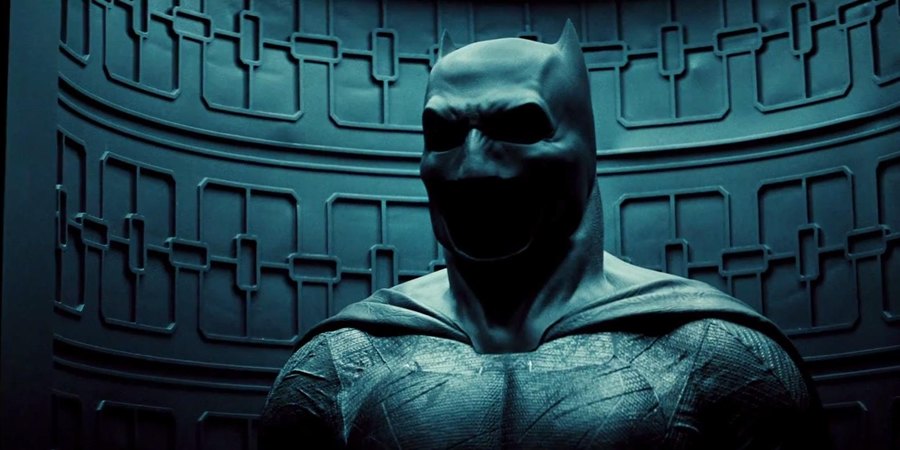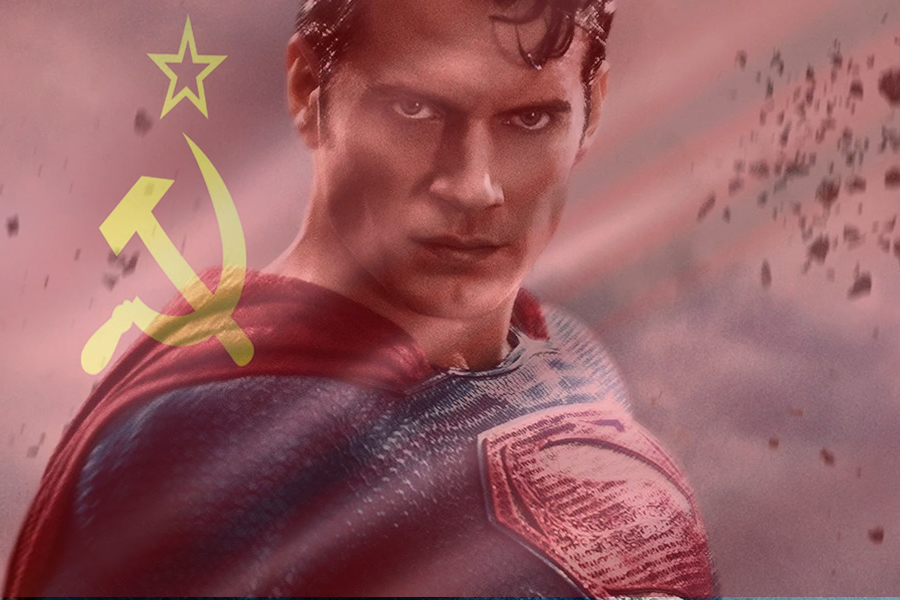Comics on Film: Can a 'Superman: Red Son' Movie Lead to More Alternate-Universe Spin-offs?
This week, a rather surprising rumor began to crop up surrounding the superhero film genre, particularly as it relates to the original superhero. At the movies, DC Comics’ icon and original superhero Superman has always been portrayed as the heroic standard-bearer of any film universe he occupies. Christopher Reeve basically defined the cinematic superhero when he first donned the red cape in 1978, and subsequent Supermen following Reeve have always shown us a character who was clearly and definitively heroic in his world.
However, with interactions on Twitter between prominent people in the movie business hinting at multiple pitches based on popular alternate-universe story Red Son, could we potentially see a new trend emerge, showing us alternate — and perhaps even unsettling — visions of the icons of DC Comics?

The Possibilities
As we detailed earlier this week, the revelation of apparent pitches regarding an adaptation of Superman: Red Son — the 2003 story reimagining the Man of Steel as a Soviet-raised overlord — has been pitched at least twice (that we know about) to the keepers of the character at Warner Bros. Pictures. Apparently, those pitches were passed up, but it should be at least partially encouraging to those with hopes of seeing an alternate take on popular superheroes just based on WB’s apparent receptivity in hearing the idea out in the first place, and on more than one occasion.
When first released as a prestige format 3-issue limited series, Superman: Red Son by writer Mark Millar (Marvel’s Civil War, Kick-Ass) and artist Dave Johnson (Batman: Black and White) was pretty revelatory. It was released under DC’s “Elseworlds” imprint, which was first designed to reimagine many of DC’s characters in situations and circumstances that are, sometimes, extremely different from what fans know. Another great Elseworlds tale includes JLA: The Nail, which presented the DC Universe in an almost identical way to the traditional DCU, except for one pivotal fact: when driving out in the county on a fateful day near Smallville, Jonathan and Martha Kent’s truck hit a nail, causing a flat tire. That resulted in them not finding a certain baby in a rocketship, leading to Kal-El’s far more protracted path to becoming Superman.
Another great one was Batman: Gotham by Gaslight, written by Brian Augustyn and illustrated by Hellboy creator Mike Mignola. Generally seen as the original Elseworlds story, it takes place in 1889, and Gotham’s most prominent citizen, Bruce Wayne, has been framed for a series of murders that were, in actuality, committed by none other than Jack the Ripper. So, Gotham by Gaslight features Batman vs. Jack the Ripper in 1889, which is fully as awesome as it sounds.
Of course, DC has released a plethora of Elseworlds stories that go far beyond their two most recognizable heroes, and if the movies are open to at least partial adaptations of those crazier sets of rules, then WB’s ability make more, varied movie experiences based on DC properties exponentially increases.

How Would Alternate Universe Films Fit into the DCEU?
Obviously, creating alternate universe stories may complicate aspects of the burgeoning DC Extended Universe, so the creation of Elseworlds stories would likely work best under the formula recently established by a rival studio on one of their biggest franchises.
With the release of Rogue One this past December, Disney showed the world that a series not necessarily tied to the main, ongoing narrative of a prime film series can absolutely work both critically and commercially. We know that the House of Mouse basically plans on releasing Star Wars movies until…well, forever, and given the expansive nature of DC Comics source material that WB has access to, there’s a nearly infinite well of material a larger-spanning film series can offer if they ever decided to think seriously about beefing up their line of DC movies even further by twisting their icons a little bit.
Of course, the most obvious difference between Elseworlds stories and the Star Wars spin-off films is that in the case of the latter, those films are all very much in-continuity with every other released Star Wars film. Making clear that potential Elseworlds films would be separate from the mainline DC Extended Universe likely wouldn’t be all that difficult, though. That name in and of itself, “Elseworlds,” does a pretty effective job in illustrating what the function of the story itself could be, and how movies under its banner could operate separately from the main films.
If a movie was titled, Superman: Red Son – An Elseworlds Story, then you could make clear to viewers everywhere that this wouldn’t encroach on the unfolding continuity that we’ve seen in the likes of Man of Steel, Wonder Woman, and the upcoming Justice League. Of course, this is all speculation on our part, but, as a comic book fan, it’s hard not to get excited at the mere possibility of seeing a Soviet Superman, or a 19th century Batman fully realized on the big screen.
Think about it, WB. It could be glorious.


